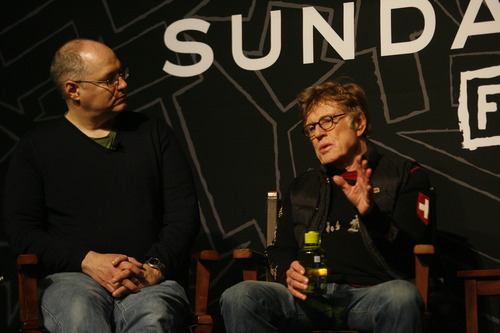This is an archived article that was published on sltrib.com in 2013, and information in the article may be outdated. It is provided only for personal research purposes and may not be reprinted.
Seven years ago this month, Utahns were in the midst of one of those short-lived kerfuffles that made people all over the world laugh at — or with — us. And the members of The Salt Lake Tribune Editorial Board were in fully-caffeinated consultations about What Must Be Said.
A movie was about to go into wide release in suburban multiplexes after a critically acclaimed run in art houses around the country. But, shortly before the first showing of "Brokeback Mountain," the owner of the MegaPlex 17 in Sandy pulled the plug. Larry H. Miller — auto dealer, NBA team owner, mega-theater impresario and pillar of the community — had apparently just discovered what the film was about. In a couple of words: gay cowboys.
(Actually, they were working as sheepherders. And, actually, they were bisexual, as, over the course of the story, each of them married a woman who quite clearly appealed to them sexually. But those are key details that one might only realize from actually having seen the dang movie.)
I volunteered to write what the Brits call"a thundering leader" — a strongly worded editorial denouncing this instance of censorious behavior that, once again, made Utah a worldwide laughingstock. But I didn't even have a chance to dip my poison pen before a wiser colleague brought me up short.
"Not," he said, "until you've seen the movie."
Of course, he was right. Even boilerplate freedom of expression stuff wouldn't have been appropriate if we did what we accused Miller of doing: Judging out of prejudice, without any direct knowledge of the particular work in question. Maybe it really was filth.
So I saw the movie first, formed a judgment afterwards.
My friend made, and I heeded, the same argument when editorializing in defense of then-Mayor Rocky Anderson's first community book club selection, The Curious Incident of the Dog in the Night-Time, from monumentally absurd accusations that it was somehow obscene just because the lower middle-class Brits the book was about talked like lower middle-class Brits. I knew they were absurd because, unlike some of those attacking the book, I actually read it.
The mistake I narrowly avoided is now being made in Utah, and all over the Internet, as critics from the ultra-right Sutherland Institute are again finding fault with the fact that the state of Utah is one of the financial sponsors of Sundance Film Festival. The fact that the annual movie marathon brings some $80 million in prized economic activity doesn't, according to these critics, balance the fact that many of the films on the menu are "obscenity" or "pornography."
These are conclusions reached by reading blurbs about film plots and characters but not, as far as anyone can tell, having actually seen the films. Or realizing that the whole point of art is to look at all facets of human life, including racism (The Adventures of Huckleberry Finn), anti-semitism (The Merchant of Venice) and great big murderous fish (Moby Dick) without, necessarily, advocating or glorifying those downsides of our nature.
Our "Brokeback Mountain" editorial included some conclusions that could only be reached by someone who had seen the film. We said that Miller had every right to show, or not, any movies he wants. It was just too bad because: 1) Shallow reporting picked up around the world wrongly suggested that the movie was banned from the whole state. 2) The fact that Miller theaters were still showing movies drenched in blood and gore did not speak well of either his artistic nor his family-friendly judgment. 3) "Brokeback Mountain" is an amazingly beautiful film that really isn't about gayness. It's about human loneliness. And being a gay cowboy (or bisexual sheepherder) in the middle of Wyoming is about as lonely as it gets.
Miller, by the way, allowed in a 2007 interview that dropping "Brokeback Mountain" the way he did was a mistake. He died in 2009, having greatly improved his understanding of gay and lesbian people by, if you can imagine, talking to some of them.
Which is even better than seeing a movie.
George Pyle, a Tribune editorial writer, finds that his taste runs more to films with Starfleet officers or plucky Hobbits. Suggest one at gpyle@sltrib.com.



